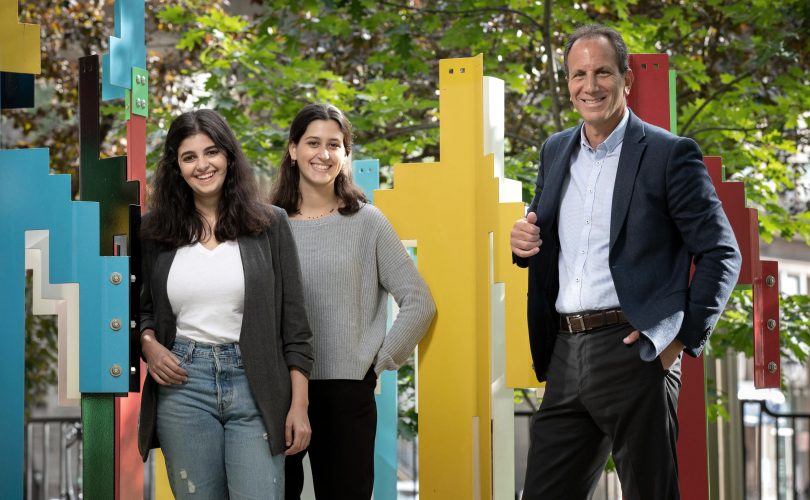On Sept. 16, McGill students started the Lebanese Student Relief Fund to support Lebanese students whose access to education has been restricted by the Aug. 4 explosion in Beirut, which killed at least 200 people and injured thousands more. The blast not only severely damaged health infrastructure but also exacerbated pre-existing political instabilities in Lebanon that has affected banking systems, impacting students’ access to funds for their education.
In addition to the explosion, the financial effects of the COVID-19 pandemic has added stress to the Lebanese economy, only worsening the nation’s pre-existing socioeconomic crisis. The dual crisis has hit students particularly hard, and both poverty rates and unemployment are expected to rise 50 per cent this year. Altogether, these factors have hindered many students’ ability to pay for their education, both at home and abroad. The organizers of the fund hope to raise $100,000 to aid as many Lebanese students at McGill as possible, who were affected by the explosion.
Yara Coussa, U2 Arts and ambassador and coordinator of the Lebanese Student Relief fund, explained the goal of the bursary to the Tribune.
“[This campaign is to] help fund the tuition of Lebanese students [who are] unable to pay for their living and student fees because of the economic collapse of their country,” Coussa said. “The only way to break Lebanon out of this cycle of poverty is to invest in the youth’s education.”
The importance of this initiative is personal to those McGill students who founded it. Coussa, who is Lebanese-Canadian, expressed the toll that the recent events have taken on Lebanese communities around the world.
“[I have] witnessed from afar the consequences of the explosion and failure of the bank system affect my loved ones and friends who are not able to pursue the degrees of their dreams, and that for me this was simply not acceptable,” Coussa said. “I think that we all deserve to be offered the same opportunities in life. Lebanese students shouldn’t pay the price for someone else’s mistake. They should have a fair shot to succeed in life.”
Alexia Chammas, U2 Management and coordinator and manager of the campaign, explained the significance of supporting international students at McGill.
“I think this initiative is specifically important at a university like McGill because diversity contributes a lot to the students’ education,” Chamas said. “In the past year, I have learned so much from my international classmates. Their cultures, traditions, and unique way of thinking helped me gain perspective and shaped me to become a better citizen.”
Georges Chaoui, U2 Bioengineering and communications director of the campaign, explained how the funds raised by the Lebanese Student Relief fund will be allocated.
“The fund is going to the scholarship and financial aids department [….] We as a team are only responsible for the fundraising part,” Chaoui said.
Chammas encouraged McGill students to participate in the fund to show support to Lebanese students, to the country of Lebanon, and to the value and importance of education.
“I strongly believe that if each student takes the time to contribute in any way, whether it’s monetary or not, we can reach our goal and offer our compatriots the education they deserve,” Chammas said.
The fundraiser is set to end on Oct. 31, but may be extended. In order to reach the campaign’s monetary goal, Coussa, Chammas, Chaoui, and a team of three others are working on gaining publicity. The students are working closely with Jade Dagher, a McGill Alumni and Lebanon native. Additionally, the fund was made possible by both the McGill Lebanese Students’ Association and McGill’s Scholarship and Student Aid office. They can be contacted on their Facebook or Instagram pages to answer any questions or inquiries about their initiative.









Great initiative. Let me know if I can help you.
Nagi Souaiby
President Lebanese Resuscitation Council
Director National School for Emergency Care.